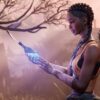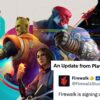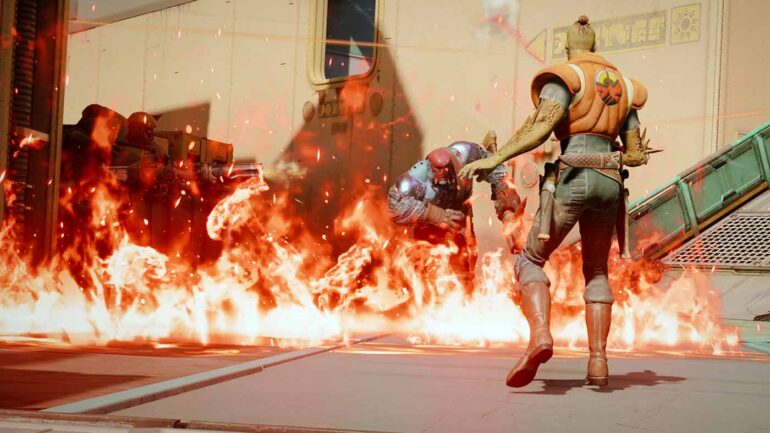Today, Firewalk Studios releases Concord – an ambitious PlayStation first-party multiplayer hero shooter. A new IP on debut, Concord represents another string in the bow of PlayStation’s live-service push, contending with the same scepticism faced by those before it.
Yesterday I interviewed the team at Firewalk Studios, checking their temperature mere hours ahead of release. There’s an understandable sense of nervousness and excitement.
I ask how they’re feeling with Concord, the culmination of years of hard work, soon out there in the world.
“Terri-fident,” jokes Jon Weisnewski, the Lead Character Designer on the game. “Confident and terrified,” he elaborates upon being asked how they’re feeling with the launch upon them.
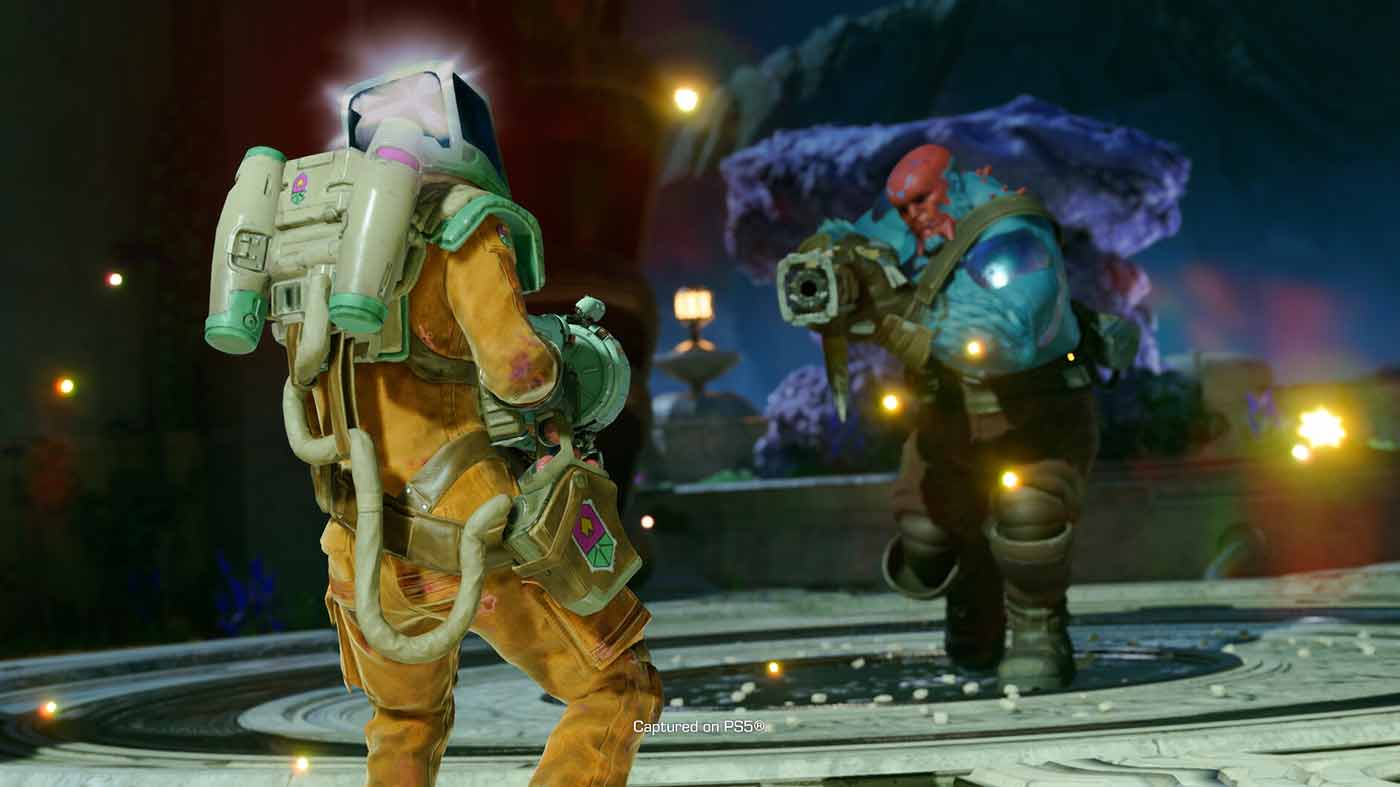
Claude Jerome, Firewalk’s Lead Gameplay Designer, agrees. He adds, “It didn’t feel real to me until I sat down to play with real humans at home on my couch with my little snacks, playing against people doing strategies we’ve never seen before.”
I was eager to hear more about the feedback they’d received from players, particularly during the Beta period where it felt initial interest waned. I was pleased to hear about several quality-of-life improvements.
“We have little things like join in progress and leaver’s penalty,” began Claude, “[and] we added the firing range, practice and solo experience.” Those are welcome additions; it’s challenging exploring a character’s abilities in the throes of a match.
Thank you to everyone that took part in the #ConcordBeta!
Before you officially board the Northstar next month, we wanted to answer some of your most common questions during the beta! pic.twitter.com/b9VFb2FGXn
— Concord (@PlayConcord) July 24, 2024
However, I feel it doesn’t address some of the key concerns surrounding the game, notably how it stands out in contrast to Overwatch or this year’s Marvel Rivals.
It’s nearly impossible to talk about the game without drawing parallels to other properties — Guardians of the Galaxy being another from a character and narrative perspective. I was eager to hear more about its unique selling point from the minds of those crafting it.
“The cool thing about this game to me is that there’s so many layers,” says Kim Kreines, the Director of IP at Firewalk. Kim references her love of trading card games and her past experience working with Magic the Gathering.
She identifies the moment in which she unlocked Concord’s ‘Crew Builder’ as being the moment she “started to realise what these brilliant game designers had setup,” nodding towards Claude opposite.
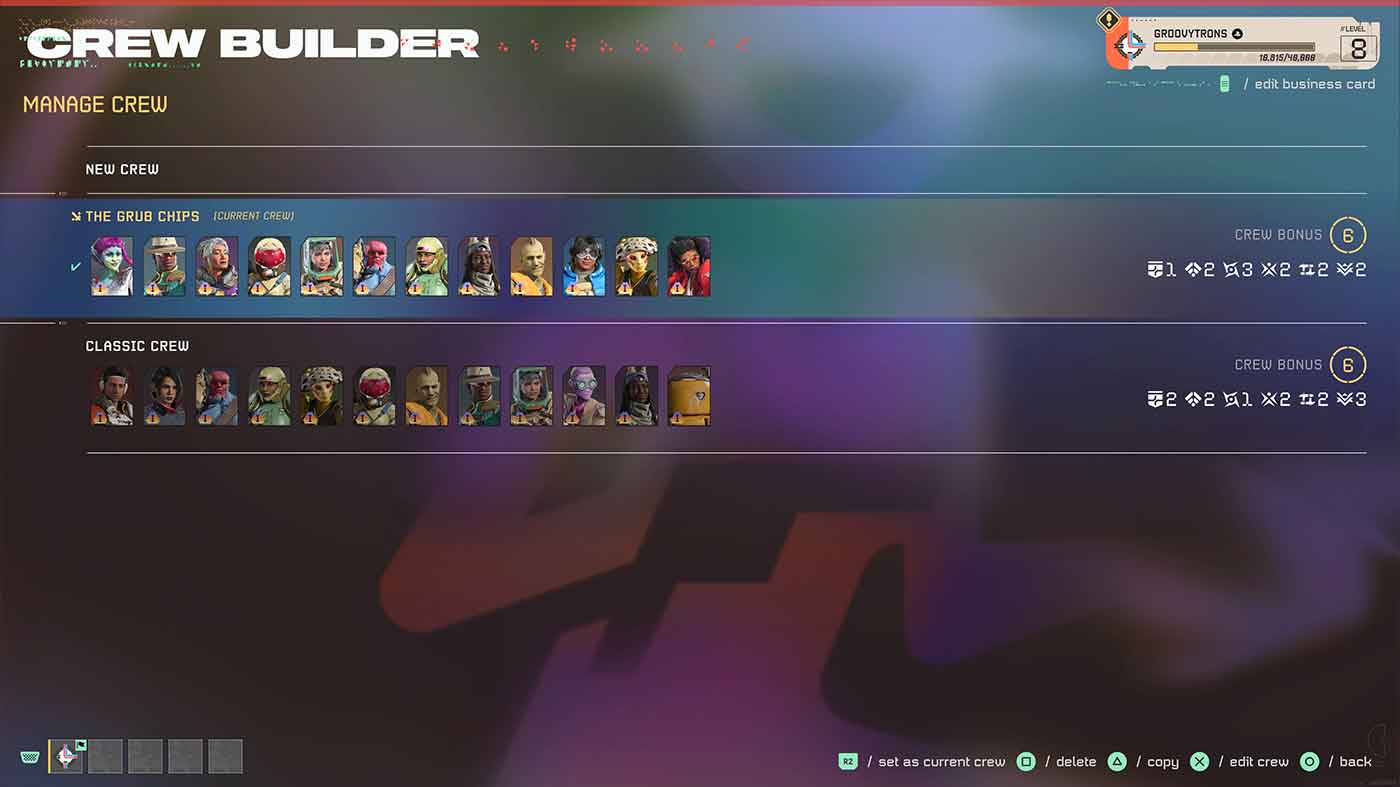
The ‘Crew Builder’ allows you to assemble an assortment of the game’s 16 ‘Freegunners’ — and any unlocked variants of a character — for you to select in a match. Concord actively encourages you to switch characters between respawns to build up buffs (called ‘Crew Bonuses’) that are carried from one character to another cycling through your crew.
There is a similarity to trading card games I hadn’t appreciated until now: like Magic the Gathering, sometimes a late game clutch requires you to play the right cards first.
“I can see where I fit into my team,” continues Kim, “at the same time I’m strategising about my own personal gameplay, I’m also strategising about my team’s gameplay and balancing that out.”
She continues with an example of this in action. “I play as Daw so I can plant a dome and get my healing pad out for my team, but before I play Daw I know I have to get the crew bonus that gives me a faster reload.”
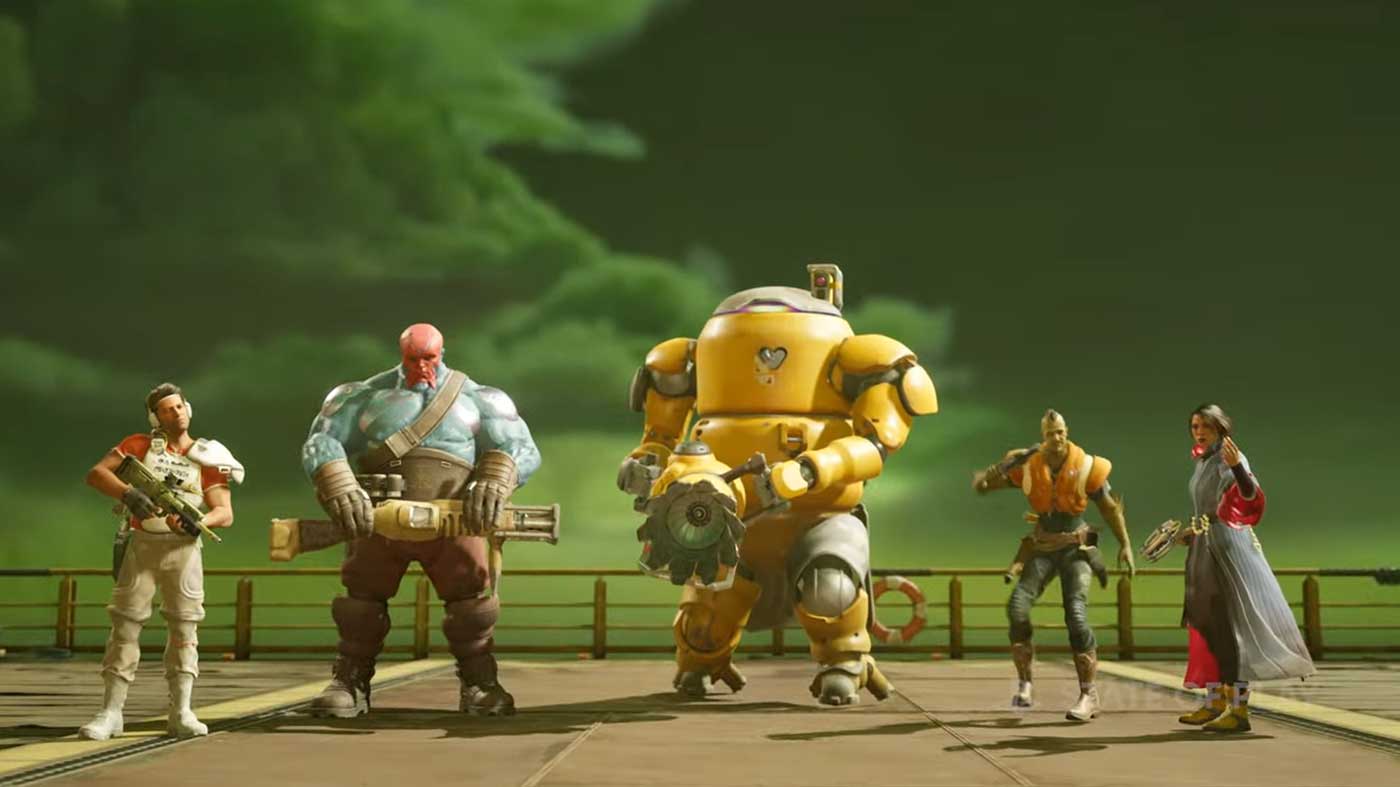
Keeping each match dynamic leaves me astonished the game is balanced. Interestingly, I’m informed that wasn’t entirely a concern.
“I’ll be frank, we didn’t set out to keep them balanced,” admits Jon about the game’s cast of characters. “I think a big part of Concord’s identity is leaning into the asymmetry… we just wanted to find interesting player personalities, interesting collections of like, a loadout, like a weapon and some abilities that felt like an identity.”
The world of Concord at this point factors in. “What’s their personality type,” Jon says they queried upon blueprinting these characters. “Who’s the human or the alien or the robot that embodies that combat style,” they would then ponder according to Jon.
“Once we built them up and we had these strong identities, then it was like ‘okay, this character is definitely too strong,’ so we’re gonna bring that down,” laughs Jon. A little bit of balancing is still necessary in the end.
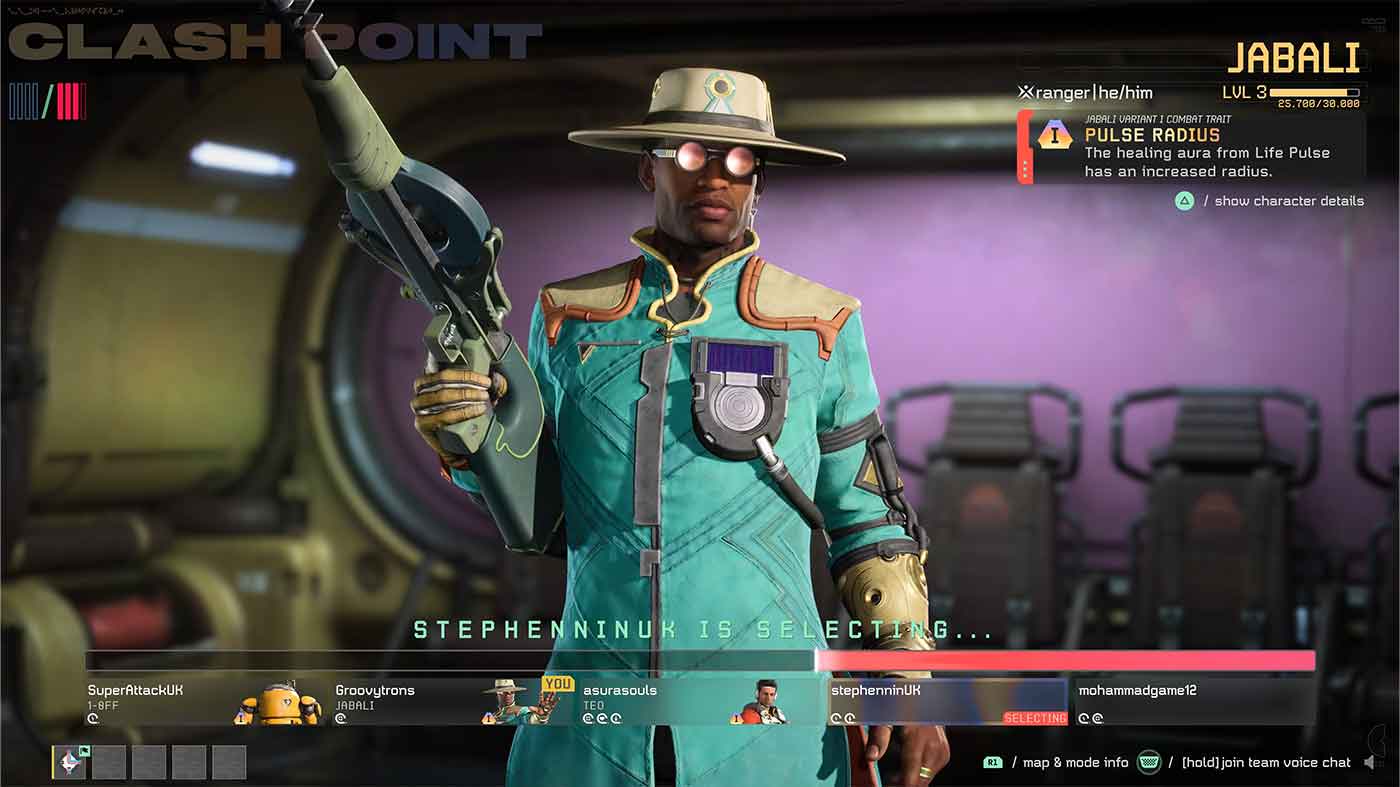
The characters are central to the experience, as you’d expect in a hero shooter. But the vignettes are a little different to what we’ve seen previously, particularly in that they’re released weekly. I wondered what the logistical challenge would be.
“We’re really lucky to have an awesome production crew on the vignettes,” says Kim, dodging the question a little.
“The thing I’m most excited to do with this IP is it all comes of gameplay: all of our stories, all our characters — all of everything.”
“The vignettes you’ll notice tend to focus around what is happening in the game, what the player experience would be, the characters and worlds you’re seeing,” explains Kim.
Of course game development is an incredibly collaborative effort, but at this point, I’m impressed at how the work of Kim, Jon and Claude combines in terms of character, combat and story. It’s an ambitious and no doubt costly exercise, but I hope Concord’s longevity is such that we get to see it play out.

Indeed the different playstyles of the characters, and the motivation to switch between them, are interesting design elements to me (that I praised in my impressions of the Beta). However, I’m still apprehensive about the game’s ability to pull people away from the competition, and ultimately build the community it needs to enjoy a long life as a live-service game.
“A big thing for us is that we knew from the beginning that we want the player experience to feel very complete,” explains Kim adding, “and the experience they have from season to season, as they grow with us, to feel like we’re all on this journey together.”
The same rationale explains Concord’s pricing strategy. Whilst the free-to-play model is common in the genre, Firewalk Studios and PlayStation are charging $60 for the game here in Australia.
“At launch, everyone’s got everything,” highlights Kim, “all 12 maps, all 16 characters.”
Claude elaborates, adding, “There’s lots of different shapes and ways these games can be put together and when we looked at our game, we looked at all the options; the viability of bouncing between characters, the depth of the variance, the maps, the modes, all the different things that make that core experience.”
“We just felt like they were all necessary.”
“There’s no way we can sort of see those things not exist in tandem with each other,” noted Claude.

I have no issue with the price for entry. I would rather that then the piecemeal alternative Claude describes in which the player base is fragmented.
That said, a player base is needed first before you can fear it becoming fragmented. It’s a difficult balancing act offering people a quality experience that commands their attention, at a price they’re willing to pay. I don’t envy the hard task Firewalk Studios has embarked on.
Prying people away from games can be tough. Communities can be ironed on having invested considerable time and money in the game of their choosing.
“I think it always comes back down to these deep, asymmetric characters with gameplay that makes you feel like you’re truly embodying the character,” suggests Claude. With all the characters available at launch, he teases, “We can push the meta in interesting ways without having to wait for other characters to come out — there’s all these different things we can do with that strategy layer.”
Jon picks up on the shifting meta of the game over time, saying the systems they’ve designed “with the long view in mind.”
“These are systems that are capable and ready to withstand a whole bunch of new injections of new characters, variants, maps, modes — every injection of content that we’re going to be offering in this game… that I think will be really exciting long term.”
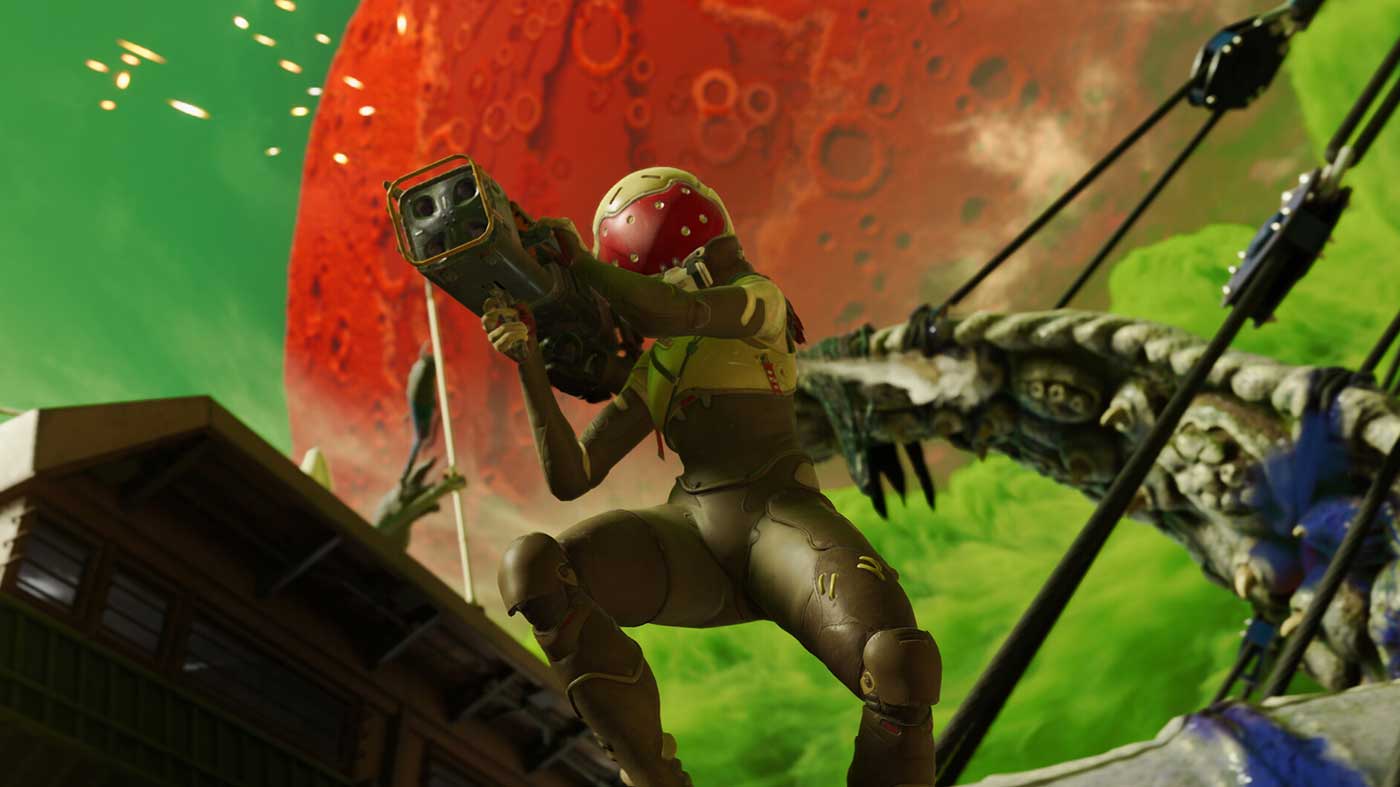
I was curious too how far ahead they’re working given new seasonal content has been teased to April of next year already.
“Really far ahead actually,” laughs Kim.
“Sometimes uncomfortably far ahead,” says Claude with a smile.
“I say that because we also want to leave room to adapt to what players are finding value in and what they’re finding they want to attach to.”
“We want to pay attention to that and we want to grow this with the community,” promises Claude.
“We’re working on even Season Four content right now,” Kim interjects. “We have so much that we’re excited to unveil both from a storytelling perspective and a gameplay perspective,” she adds, referencing the Season One content dropping much sooner in October.
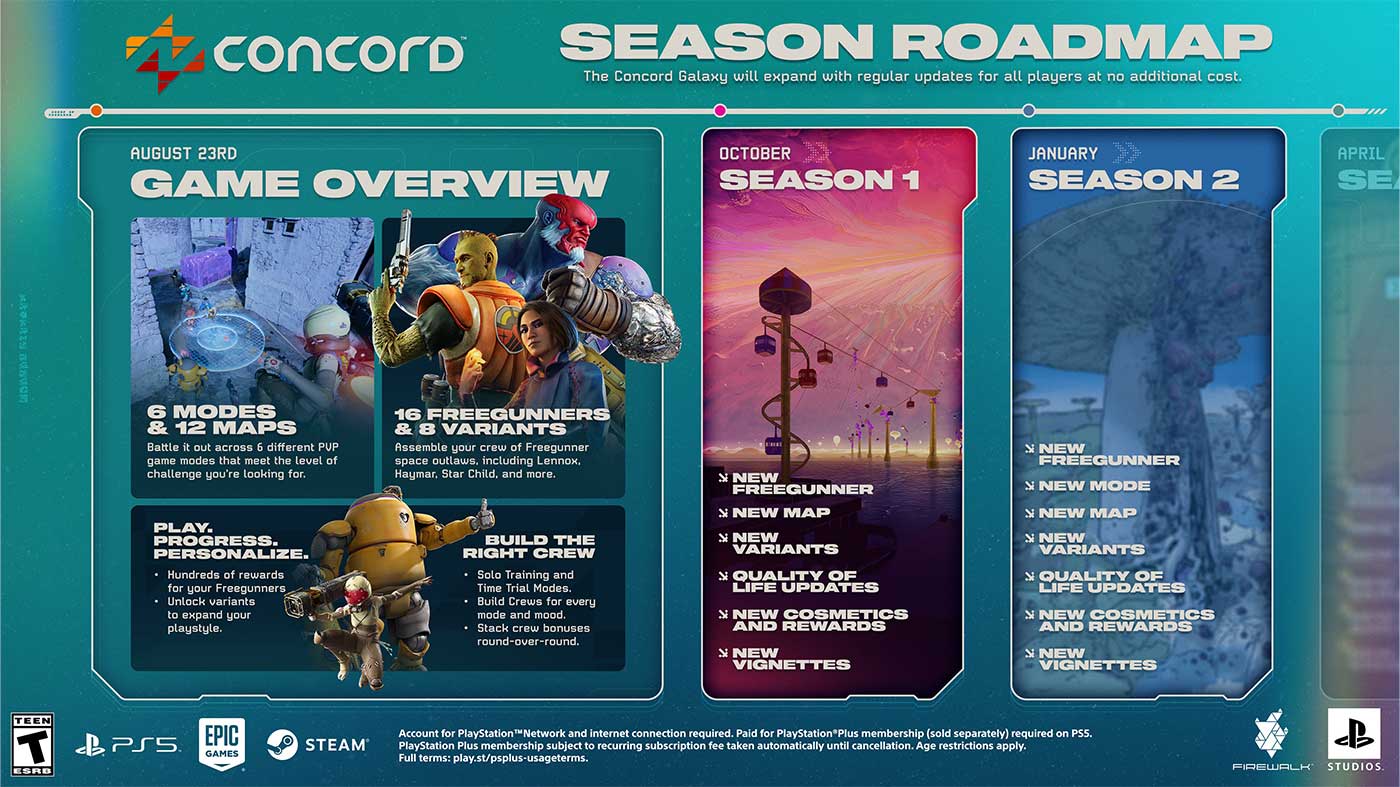
As they all tease, the launch is supposedly just the beginning for Concord. But first impressions matter. Concord’s story may be defined by its first day.
Based on my conversation with Kim, Jon and Claude at least, I hope to see the full extent of their vision realised.
There’s a promise of more surprises to come and we’ve seen games gain momentum over time, but Concord’s fate ultimately rests in the hands of the community it can galvanise.
The game’s now available to all, so it will be an interesting one to watch.
Stay tuned for our own thoughts coming soon.
